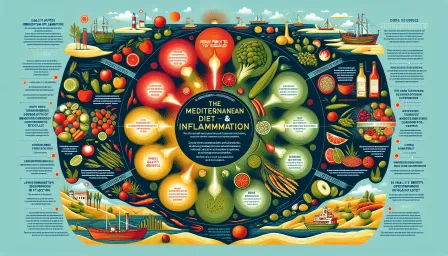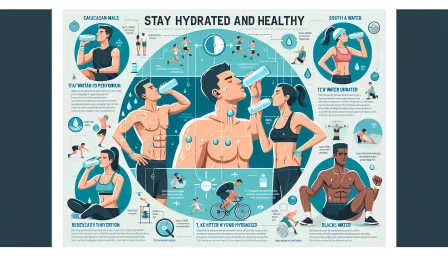Mastering Calorie Counting for Athletes: Boost Your Performance

Learn how calorie counting for athletes can enhance performance. Find expert tips, methodologies, and nutritional insights to take your training to the next level.
As athletes, achieving peak performance requires a multifaceted approach. Among the many variables, nutrition stands paramount. One of the most effective nutritional strategies to enhance performance is calorie counting. By understanding and managing caloric intake, athletes can fine-tune their energy levels, optimize recovery, and reach their athletic peak. This article dives into the intricacies of calorie counting for athletes, offering insights and strategies to help you elevate your game.
Why Calorie Counting Matters for Athletes
Calories are units of energy that fuel our daily activities and, for athletes, drive training and competition. Balancing calorie intake is crucial to prevent underfeeding, which can lead to energy deficits and impaired performance, and overeating, which can result in unwanted weight gain and sluggishness.
Determining Your Caloric Needs
Basal Metabolic Rate (BMR)
Your Basal Metabolic Rate (BMR) is the number of calories your body needs at rest to maintain vital functions like breathing and circulation. It’s the foundation of your total caloric requirement.
Total Daily Energy Expenditure (TDEE)
Your Total Daily Energy Expenditure (TDEE) includes your BMR plus the calories burned through physical activity and digestion. TDEE is crucial for athletes as it accounts for the significant energy expended during training and competition.
Activity Level and Training Intensity
Customize your caloric intake based on your training volume, intensity, and goals. For instance, endurance athletes and bodybuilders have markedly different caloric requirements. Tailoring your diet to your sport ensures you meet energy demands without compromising performance.
Macronutrient Balance
Carbohydrates
Carbohydrates are pivotal for athletes, providing the primary source of energy for high-intensity exercise. Aim for complex carbohydrates like whole grains, fruits, and vegetables to ensure sustained energy release.
Proteins
Proteins are essential for muscle repair and growth. Include lean protein sources such as chicken, fish, beans, and legumes in your diet to support recovery and muscle synthesis.
Fats
Healthy fats are crucial for overall health and endurance. Focus on unsaturated fats found in nuts, seeds, avocados, and olive oil to provide a steady energy supply for long-duration activities.
Tracking Your Caloric Intake
Leveraging technology can simplify the calorie counting process. Numerous apps and online tools can help you log your meals, track calories, and ensure you’re meeting your nutritional goals.
Apps and Tools
Popular choices like MyFitnessPal, Cronometer, and FitDay offer extensive food databases, personalized goals, and integration with fitness trackers, making calorie management more accessible and efficient.
Manual Tracking
For those who prefer a more hands-on approach, maintaining a food diary can also be effective. Recording meals, portion sizes, and nutritional information can provide valuable insights and foster mindful eating habits.
Common Challenges and Solutions
Inconsistent Tracking
Inconsistency in tracking can derail your calorie counting efforts. Establish a routine and set reminders to log your meals promptly. Consistency is key to obtaining accurate data and insights.
Underestimating Portion Sizes
Visual assessments of food quantities often lead to underestimation. Use a kitchen scale and measuring cups to accurately gauge portion sizes and ensure precise calorie intake.
Adapting to Changing Needs
As your training intensity and goals evolve, so will your caloric needs. Regularly reassess your TDEE and adjust your intake accordingly to align with your current demands and objectives.
The Role of Hydration
Hydration plays an integral role in athletic performance and calorie management. Dehydration can impair cognitive function, reduce endurance, and lead to inefficient energy metabolism. Ensure you maintain adequate fluid intake, especially during and after intense training sessions.
Professional Guidance
Consulting with a sports nutritionist can provide personalized insights and strategies tailored to your specific needs. Professional guidance ensures that your dietary plans align with your goals, health status, and performance requirements.
Conclusion
Mastering calorie counting for athletes involves a strategic approach to energy management, tailored intake, and consistent monitoring. By understanding your caloric needs and balancing your macronutrient intake, you can significantly enhance your performance, optimize recovery, and achieve your athletic goals. Utilize technology, stay consistent, and seek professional guidance to navigate the complexities of calorie counting and reach new heights in your athletic pursuits.



























